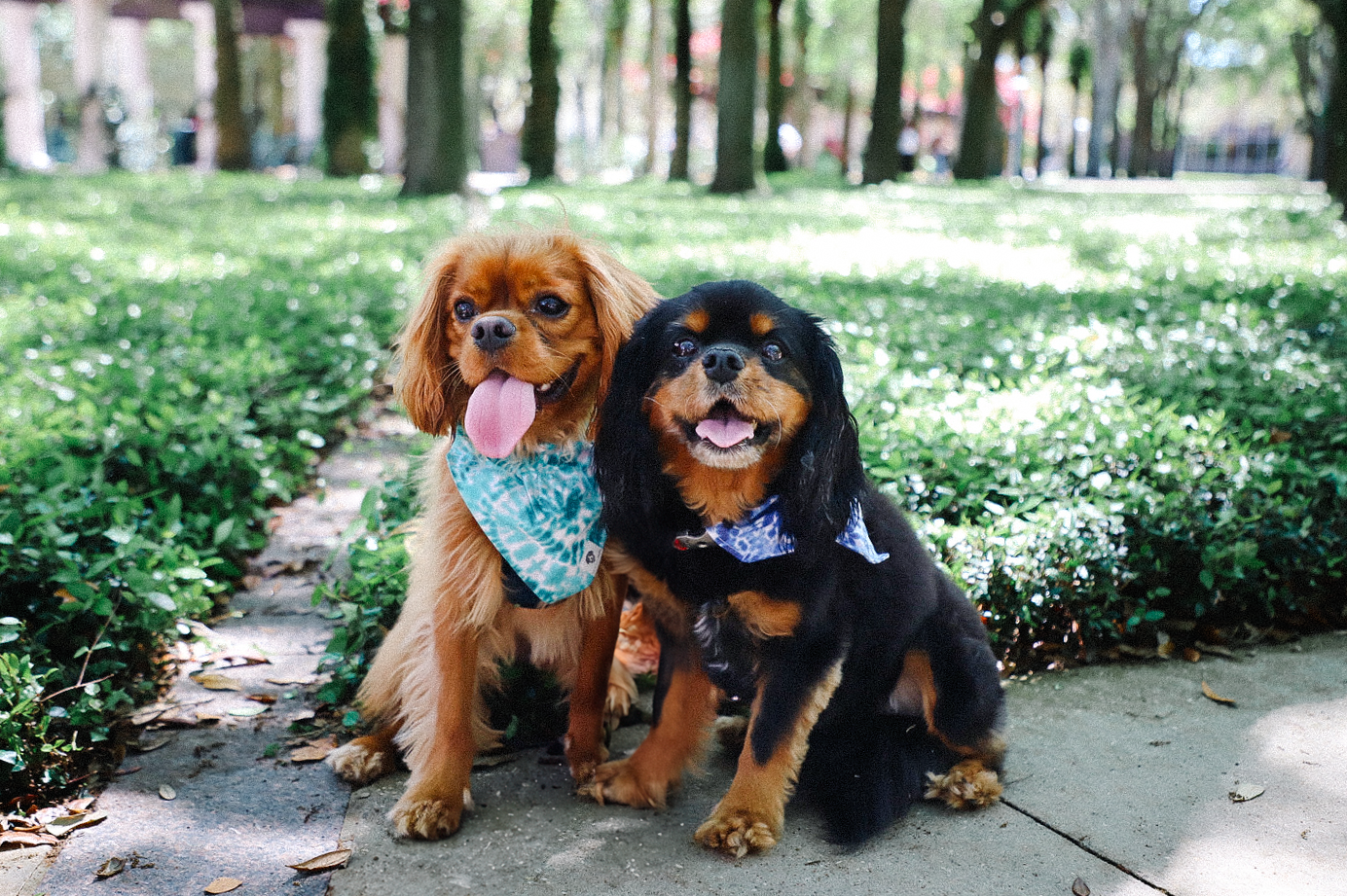
Why have one pup when you can have two? The answer seems easy, but it’s actually not so simple. Bringing another pup into your home is a lot to consider, both for yourself and your furry friend.
Most often, bringing home a new dog will enrich your first dog’s quality of life. Today, the opportunity for dogs to socialize is limited. Dogs are kept inside while we’re working in the office, taking the kids to school, or squeezing in that new yoga class downtown. By having two pups cohabitate, it increases their opportunity for socialization.
According to Emily Carl, Head of Pet Services at Doggo, two dogs are very beneficial for both the pet parent and the pups. “When a pup has another puppy friend, the human is relied on less as an outlet for all that energy and social enrichment is built into your pup’s daily lives,” says Carl, who has a professional background in training and animal behavior. Dogs are social creatures, so having a constant companion is oftentimes better for their overall health. Especially a companion within their co-species. The interaction between two dogs is beneficial for their mental health, self-esteem, and energy levels. In positive experiences, dogs even learn how to share with each other.
However, socialization is not always a walk in the park. Carl warns us of a few caveats, “This position only holds if the pet parent is able to provide for both pups via finances, space, energy, time, and training.” This is not a decision to rush into, but takes proper consideration and preparation. All dogs need basic training when they arrive in a new home. Once you complete training for your new dog, your first dog may also need retraining to make sure their new roomie doesn’t mess up their schedule and behavioral patterns. Keep in mind that another dog requires twice the food, supplies, and veterinary visits (which means bills!). So be sure to budget your finances and time before saying, “the more the merrier.”
Adding another dog to your furry family may also pose problems for your OG pup as they may feel a sense of displacement. They may not enjoy sharing their toys, territory, food, or pet parents. This feeling of “they’re getting all the attention and taking what’s mine” can cause behavioral clashes. Your first dog may lash out and defy already-learned rules and routines. According to Carl, the most important thing between your pups should be that they have compatible temperaments and play styles.
Many assume it’s easiest to adopt puppy brothers and sisters. But getting pups from the same litter can actually cause more behavioral issues, “While it may feel heartless to separate littermates, it's actually the kinder thing to do as trends have been found linking increased aggression and behavioral issues between littermates” explains Carl. So even if you have budgeted, allotted the proper space, and set up all necessary precautions for a new pup, you still might want to steer clear of adopting a fellow littermate.
Getting another dog requires the right amount of thoughtfulness and care, so you should consider all the variables and plan to bring in backup in the form of a trainer or behaviorist. With the right execution, your pup could be getting a new built-in bestie. What could be more worthwhile than that?




